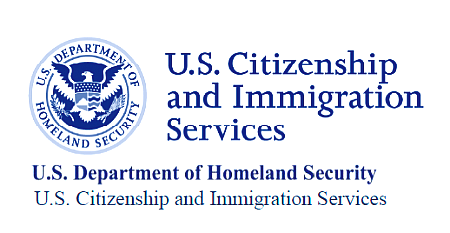Update: On Sept. 9, 2022, the Department of Homeland Security (DHS) amended its regulations on public charge determinations effective Dec. 23, 2022. This rulemaking codified into regulation DHS’s longstanding guidance that a noncitizen’s application for or receipt of Supplemental Nutrition Assistance Program (SNAP) benefits, or other federal nutrition assistance benefits administered by the Food and Nutrition Service (FNS), are not considered when making public charge determinations. For more information on the 2022 DHS public charge rulemaking, please visit this page. This rulemaking does not change the contents of this letter/page.

| 
|
Dear State SNAP Commissioners and Community Partners,
The Food and Nutrition Service (FNS) of the U.S. Department of Agriculture (USDA) and the U.S. Citizenship and Immigration Services (USCIS) of the U.S. Department of Homeland Security want to make sure that everyone who qualifies for nutrition assistance gets that help.
The Supplemental Nutrition Assistance Program (SNAP) is the cornerstone nutrition assistance program of FNS. SNAP helps individuals and families purchase food and combat nutrition insecurity. Although some immigrants and their families are eligible for SNAP, studies show that many do not apply in fear that doing so will make them a “public charge” and negatively impact their future immigration status.1 This sentiment increased with the 2019 Public Charge Final Rule and appears to persist despite the fact that the rule has been vacated as of March 9, 2021. Consistent with the 1999 Interim Field Guidance, which is currently in effect, any application for, receipt of, or potential future use of SNAP benefits is not considered as part of the public charge determination by USCIS. Therefore, immigrants will not be found inadmissible on the public charge ground under the totality of the circumstances determination because they or a family member applied for or received SNAP benefits.
FNS and USCIS understand the importance of communicating current public charge policies accurately. To help states share the message that participating in SNAP does not make someone a public charge and will not be considered in a public charge determination, FNS and USCIS developed the language below. We encourage states to adopt the chart to offer clarity to their SNAP-eligible immigrants and mixed status household clients. The chart is suitable for use as an attachment to SNAP applications and review forms, for inclusion on state agency websites, and for clients to pick up at local offices. Community partners can also utilize the information below.
Dear SNAP Applicant, Applying for or receiving SNAP does not make you a public charge and will not be considered in a public charge determination. Applying for or receiving SNAP will not affect your ability to:
You can also apply for SNAP on behalf of the eligible immigrants or U.S. citizens in your family, even if you do not want to apply for benefits for yourself, without affecting your or their immigration status. For example, if a parent is not eligible for SNAP because of their immigration status, they can still apply for their eligible children. The SNAP office is not allowed to ask for immigration documents for people who are not applying to receive benefits themselves. If you need food help, and you or members of your household qualify, please apply for SNAP for yourself or your family. Do it for your family's good! For more information relating to general immigration information in English or in Spanish, please call USCIS at 1-800-375-5283. For general information about SNAP, please call 1-800-221-5689 (English only) or 202-720-2791 (English and Spanish) to be connected to your state's SNAP hotline. |
We understand that in times of rising caseloads and limited resources, states and partners may need additional help reaching out to eligible families in need. We encourage you to use the provided language as a tool to conduct outreach to immigrant families in your communities. Doing so will reassure them that applying for SNAP will not affect their immigration status or ability to obtain a green card or become a U.S. citizen now or in the future.
FNS is committed to working with state agencies and advocacy partners to spread awareness about immigrant eligibility for SNAP. FNS will soon release new webpages featuring information relevant to immigrants and mixed-status households. The SNAP FY 2022 Outreach Priorities Memorandum is currently available for states and advocacy partners. 2 Additionally, the 2011 SNAP Guidance on Non-Citizen Eligibility is a comprehensive resource for anyone looking for further clarification on SNAP policies in this area.
Thank you for your efforts to make the public charge policy regarding the receipt of SNAP benefits more widely understood. Your assistance will help eligible immigrant individuals and families, as well as many U.S. citizens, understand the current public charge policy so that they are not needlessly discouraged from applying for or receiving SNAP benefits.
Best wishes,
| Stacy Dean Deputy Under Secretary Food, Nutrition, and Consumer Services | Ur M. Jaddou Director U.S. Citizenship and Immigration Services |
2 Available at: https://www.fns.usda.gov/snap/introduction-priority-areas-state-outreach-plans.


